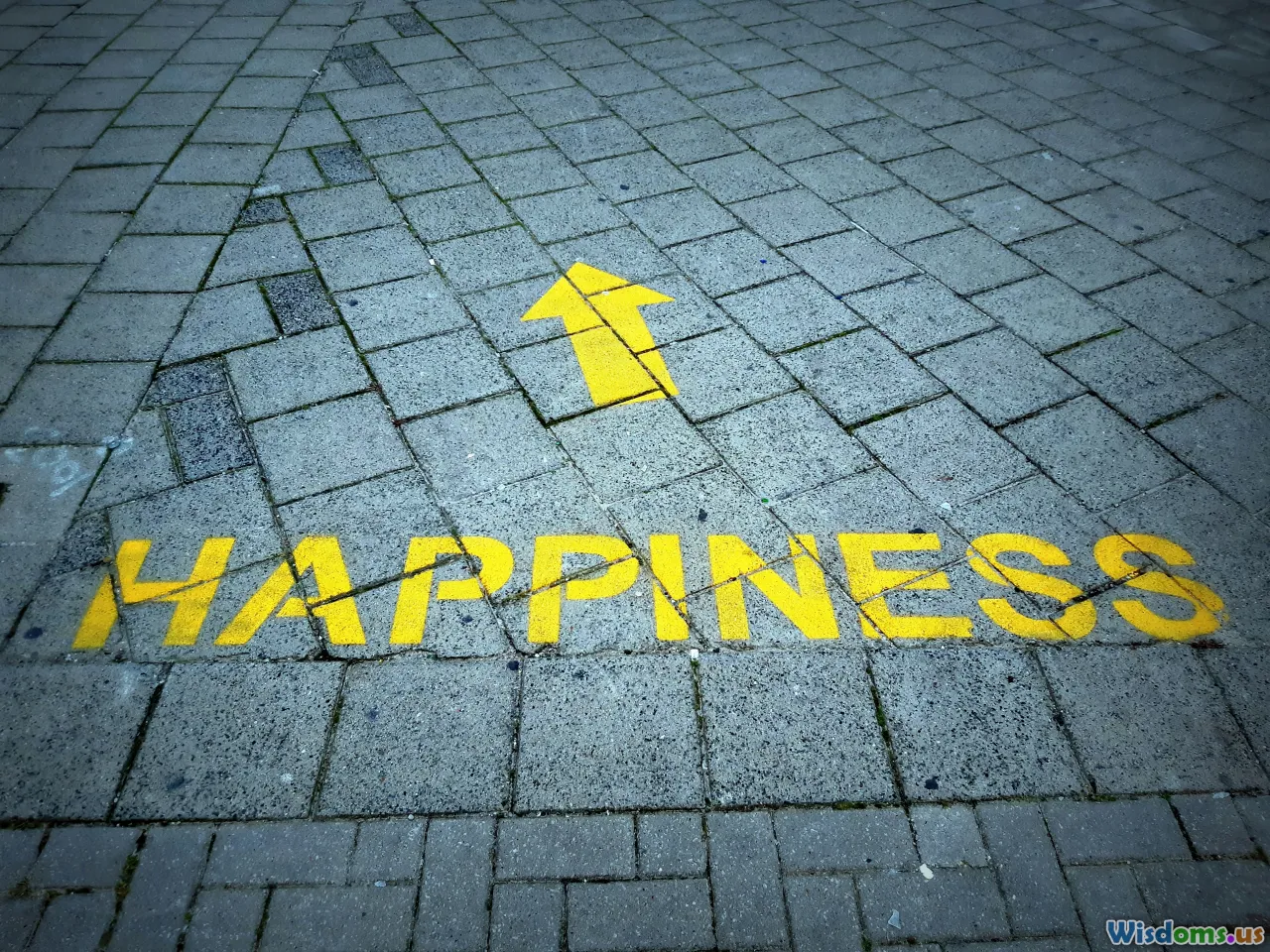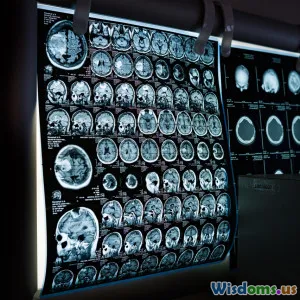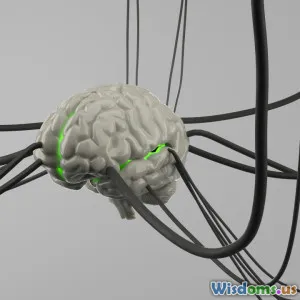
Personal Story Overcoming Brain Fog with Science Based Habits
16 min read A firsthand account of overcoming brain fog using effective, science-based daily habits for mental clarity. (0 Reviews)
A Personal Journey: Overcoming Brain Fog with Science-Based Habits
For months, I trudged through each day struggling to remember why I walked into rooms, rereading the same paragraphs for clarity, and fighting a heavy, relentless haze that clouded my thinking. I called it “brain fog”—and it left me feeling disconnected, frustrated, and far from my best self.
Soon, the professional responsibilities I cared about slipped. My relationships bore the brunt. Most distressing, I saw my joy in learning evaporating; curiosity was replaced by fatigue. Determined to break free, I turned to science-backed habits instead of guesswork and chronicled my transformational journey. Here’s how evidence-based change helped me reclaim clarity and mental vitality.
Understanding Brain Fog: A Modern Struggle

Before I could tackle my cognitive cloudiness, I needed to understand what I was up against. Brain fog isn’t a formal clinical diagnosis but a common self-reported phenomenon characterized by persistent issues such as poor memory, lack of mental clarity, confusion, and concentration difficulties.
Several scientific studies correlate brain fog with lifestyle factors like sleep deprivation, stress, diet, inactivity, and digital overwhelm. According to a 2022 review in Frontiers in Neuroscience, prolonged stress increases cortisol, which disrupts neurotransmitters needed for clear cognition. Meanwhile, systematic sleep loss can shrink the hippocampus (the brain’s memory hub) and impair recall or focus.
Reflecting on these insights, I began tracking my habits with a simple journal. Within days, a pattern emerged:
- Rarely reaching 7 hours of sleep
- Inconsistent meals and high caffeine intake
- Excessive daily screen time (over 7 hours)
- Virtually no exercise
- Chronic stress from work
Recognizing brain fog as multifactorial and modifiable was empowering—science pointed to actionable starting points.
Sleep: Resetting My Cognitive Foundation

A recurring pattern in my fog was late-night doom-scrolling, caffeine fueled afternoons, and waking unrested. The science is unsurprising: chronic sleep restriction impairs attention, reaction time, and memory. But knowing isn’t doing, and genuine change required embracing sleep hygiene, not just wishing for it.
Key Habits I Introduced:
-
Regular Sleep Schedule:
- I set a nightly phone alarm for wind-down at 10:00pm, with actual lights out at 10:30pm—even on weekends.
-
Digital Curfew:
- At 9:30pm, screens went dark. Apps like “f.lux” dimmed my devices automatically. According to Harvard Medical School studies, blue light resets circadian rhythm and suppresses melatonin, the sleep hormone—so curbing screens actually worked.
-
Sleep-Supporting Environment:
- Blackout curtains, a cool room (65°F), and investing in a white-noise machine fostered deeper sleep without disruptions.
Within a week, I noticed my grogginess lightening. After two weeks of consistent sleep, I experienced a dramatic boost—my first morning with crisp mental clarity in months.
Nutrition: Fueling a Sharper Mind

Next, everyday fueling came under scrutiny. Research consistently links brain fog with unstable blood sugar, high-processed food diets, and nutritional insufficiencies. I realized that skipped breakfasts, heavy takeout meals, and afternoon sugar crashes were routine. My body and brain never received the steady fuel for peak operation.
Evidence-Based Adjustments:
-
Protein-Rich Breakfast: Replacing pastries with eggs or Greek yogurt made a noticeable difference. Protein supports neurotransmitter production—including dopamine and acetylcholine for motivation and learning.
-
Stable Carbs & Omega-3 Rich Foods: Swapping white bread for whole grains and adding chia pudding, fatty fish, and walnuts provided slow-release energy and brain-essential fats. Omega-3s, according to The American Journal of Clinical Nutrition, can improve cognitive processing and protect against mental decline.
-
Hydration Routine: Setting a water bottle at my desk doubled my daily intake and noticeably reduced headaches and afternoon sluggishness.
After a month, my energy swings flattened. The haze after meals disappeared, hunger was more predictable, and mental performance stabilized—especially in the challenging pre-lunch hours.
Movement: Unsticking a Stagnant Mind

Multiple peer-reviewed trials underscore the direct link between movement and brain health. The British Journal of Sports Medicine reports even 20-minute daily walks can sharpen focus and boost executive function. My own activity had dwindled to mere steps between the fridge and my work desk—a sedentary lifestyle proven to slow neuroplasticity and ramp up fatigue.
Small Steps with Big Payoff:
-
Morning Movement Ritual: I started simple: gentle stretching upon waking, followed by a brisk 10-minute walk outside, rain or shine. Sunlight on my skin and rhythmic movement set a positive tone for my day.
-
Desk Breaks Every Hour: I used a timer to stand up, stretch, or pace around, following the technique of the “Pomodoro” work cycle. Unplugging even briefly helped reset attention and creativity.
-
Experimenting with Workouts: I joined a local fitness class and, as per Frontiers in Aging Neuroscience findings, noticed post-workout increases in alertness and mood lasting for hours after.
Consistent movement—no matter how basic—shifted my mental energy. Complex problem-solving and creative work flowed better. Stepping out for walks became a cherished cognitive reset.
Mindful Tech Use: Reclaiming Attention

Technology had become both work essential and mental saboteur. Endless notifications, message pings, and social feeds left my working memory fragmented. A 2019 study from the University of California, Irvine, found information workers average less than three minutes of focus between interruptions, leading to a persistent state of mental residue and fatigue.
Resetting My Digital Norms:
-
Batching Communications: I disabled instant email reunions and checked inboxes only at scheduled intervals—10:00am, 1:00pm, and 4:30pm.
-
Focus Tools: Installing apps like “Forest” (which rewards staying off your device) helped reinforce productive, distraction-free times. White-listing only critical contacts kept my smartphone blissfully quiet.
-
Intentional Scripting: I leveraged behavioral science: removing tempting apps from my home screen and keeping a non-negotiable “No Phone” zone at the dinner table.
Within a few weeks, the compulsion to incessantly check my phone waned. My attention span lengthened significantly, and task completion flourished—arguably the biggest gain of my science-based experiment so far.
Stress Reduction: Calm Brains Learn Best

Chronic stress, even low-grade, unleashes a flood of cortisol that can literally shrink parts of the prefrontal cortex, the very center responsible for logic and memory. Realizing this, I took action not just to cope with stress but to actively reduce it.
Practices That Made the Difference:
-
Mindful Microbreaks: I set twice-daily reminders to step away and do slow, deep belly breaths, following the 4-7-8 method (inhale for 4, hold for 7, exhale for 8 seconds). Over time, anxieties melted away and my mind steadied.
-
Guided Meditation: Using apps like “Headspace,” I set aside 10 minutes for simple mindfulness sessions every afternoon. A 2021 meta-analysis in JAMA Internal Medicine revealed even short-term meditation lowers perceived stress and improves cognitive flexibility—my lived experience echoed this.
-
Nature Immersion: Weekend walks in my local park provided a powerful mood lift. "Forest bathing"—as documented in Environmental Health and Preventive Medicine—can decrease perceived stress by 60% compared to urban settings.
These practices subtly shifted my baseline: I rebounded faster from work upsets and setbacks, and the persistent weight in my chest lightened.
Supplementation and Functional Medicine

Though skeptical at first, I approached supplements and functional testing with caution and after consulting my physician. For some, unresolved brain fog relates to medical conditions or deficiencies—thyroid issues, B12, or iron among them.
What I Learned From Bloodwork:
After thorough testing, my ferritin (iron storage) and B12 levels were low-normal—a state tied to sluggish processing according to the Journal of Neurology. With my doctor’s nod, I added a daily methylated B-complex and gentle iron supplement, tracking my response carefully.
Supplements Backed by Research:
-
Omega-3 Fish Oil: Two grams daily for six weeks. Research suggests supplementation benefits memory, particularly for those with low dietary intake.
-
Magnesium Glycinate: To support relaxation and counteract the stress-induced depletion associated with poor sleep.
Within two months, I noticed not just cognitive improvement but improved mood and energy—a clear case of science guiding safe, responsible supplementation.
Building a Personalized System & Sticking to It
While it was tempting to overhaul my entire lifestyle overnight, sustainable change demanded patience and consistency. I approached science-based habits as an experiment, refining my system using tracking tools and self-reflection.
What Worked for Long-Term Success:
-
Habit Stacking:
- Following the advice from Atomic Habits by James Clear, I anchored new habits—like drinking water or stretching—onto established routines (like morning coffee or post-work emails).
-
Digital or Paper Trackers:
- Using habit apps ("Done," "Habitica") made streaks and progress visible while keeping motivation high.
-
Weekly Self-Assessments:
- Periodically, I rated my brain clarity, focus, and mood from 1-10, adjusting routines as needed—learning from setbacks instead of abandoning efforts.
-
Social Accountability:
- I enlisted a friend on the same journey. We texted check-ins and celebrated progress, drawing from behavioral psychology research that shows public commitment dramatically increases goal achievement.
Gradually, science-based routines evolved into my daily non-negotiables. This system approach protected me from burnout and helped me spot new triggers or areas needing attention, long after the original fog faded.
The Payoff: Life on the Other Side of Brain Fog

Months into my journey, the results ripple through every facet of my life: sharper recall, effortless conversations, and workdays powered by steady, reliable mental presence. Most surprising was the restoration of my underlying enthusiasm for learning, creativity, and personal connection—all casualties of my earlier cognitive slump.
A Few Unexpected Perks:
- Emotional Resilience: Clear thinking allowed me to approach stress and conflict thoughtfully, dissolving knee-jerk reactions.
- Improved Relationships: Reliable energy made space for meaningful time with loved ones, not just recovery from exhaustion.
- Career Advancement: The ability to focus deeply and communicate clearly unlocked greater opportunities and satisfaction at work.
Above all, I learned that mental clarity often results not from hacks or miracles but by living harmoniously with how our minds and bodies truly function best. When habits align with neuroscience, the impact compounds—a fog lifts, and a vibrant mind takes its place.
If you find yourself in the grip of brain fog, remember: small, science-based adjustments, applied consistently, can profoundly upgrade your mental landscape. Trust the data, trust the process, and rediscover your clarity one day at a time.
Rate the Post
User Reviews
Other posts in Brain Myths and Facts
Popular Posts


















